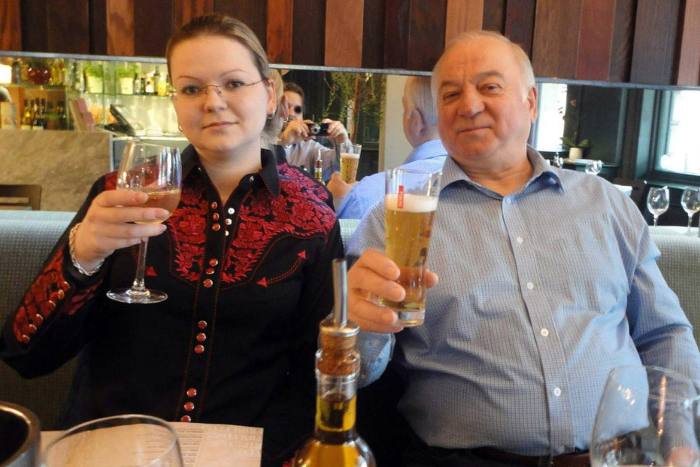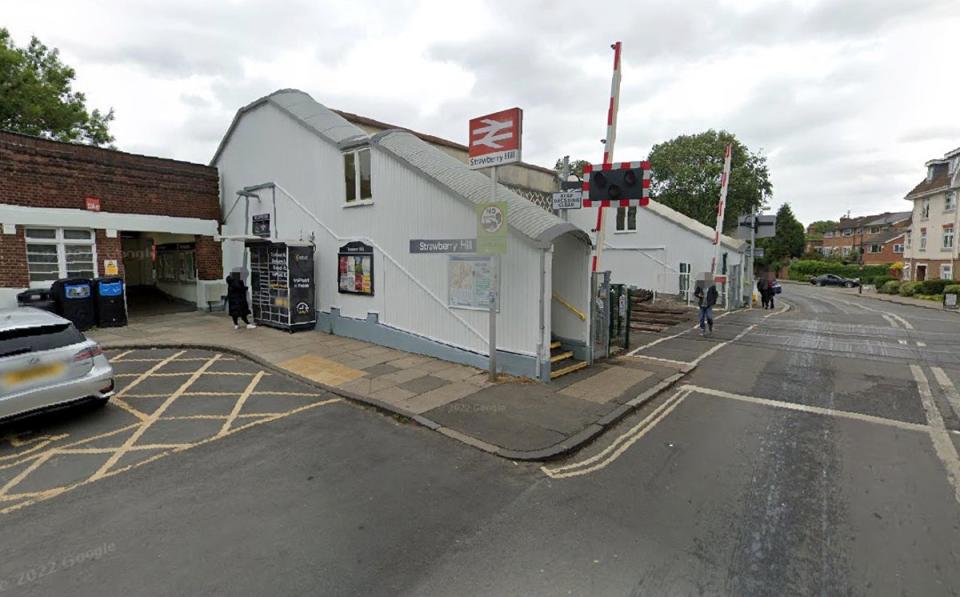Receive free Political espionage updates
We’ll send you a myFT Daily Digest email rounding up the latest Political espionage news every morning.
The seaside guest house and London addresses where British security forces arrested five Bulgarians suspected of being Russian agents had all the hallmarks of the drab suburban settings typical of a spy novel.
It was the latest in a series of moves by western security forces to disrupt Russian spy networks since Moscow launched its full-scale invasion of Ukraine.
The investigation under the Official Secrets Act into the five people targeted in raids on homes in London and Great Yarmouth in February — but only made public this week — continues.
But former spy chiefs have cautioned the latest sweep may not have netted high-level agents after three of the five people were subsequently charged with possessing false identity documents with “improper intention”.
The three were named as tech entrepreneur Orlin Roussev, 45, of Great Yarmouth, Norfolk, and Bizer Dzhambazov, 41, and Katrin Ivanova, 31, of Harrow in north-west London.
Although Bulgarian, they are suspected of working for Moscow and were reportedly in possession of fake passports, identity cards and other documents from nine different countries.
Sir Richard Dearlove, former head of MI6 © David Hartley/Shutterstock
Sir Richard Dearlove, a former head of MI6, the UK’s foreign intelligence service, said Russian spying operations in the UK were a “high priority” for Britain’s security bodies as the west was involved in a “grey war with Russia”, which made espionage “more likely”.
But he cautioned that any people fitting the suspects’ profiles were unlikely to be high-level spies working directly for Russia’s foreign intelligence service, the SVR.
Instead, such profiles more closely matched those of “facilities agents . . . who have apparently no connection with Russia officially” but provide contacts, support and money to more valuable agents. “It’s one of the ways they [the Russians] operate”, Dearlove said.
Western efforts to disrupt the Kremlin’s operations have so far led to the expulsion of 400 suspected Russian spies, around half the total thought to be working under diplomatic cover from European capitals, according to western intelligence officials.

US authorities allege that Sergey Cherkasov, created a false identity in Brazil more than a decade ago, where he lived under the alias Victor Muller Ferreira © US Department of Justice
In addition, over the past 17 months, at least two Russian nationals have been arrested in the west suspected of working under deep cover as so-called sleeper agents or “illegals”. These operatives spend years developing intricate fake personas and cover stories and are not protected by diplomatic immunity.
In one of the cases, US authorities allege that Sergey Cherkasov, created a false identity in Brazil more than a decade ago, living under the alias Victor Muller Ferreira but in fact working undercover for the GRU, Russian military intelligence.
He is currently serving a five-year sentence in Brazil for fraud. Both US and Russian authorities want to extradite him, the former to face charges of spying, the latter for alleged drug smuggling.
Sir Alex Younger, the head of MI6 until 2020, agreed with Dearlove’s assessment that, by comparison, it was not likely anyone fitting the profiles of the Bulgarian suspects was a top agent.
“It does not look like that,” he said. “Forging documents and leaving evidence lying around is not what you’d expect from a professional organisation” such as the SVR, the Russian counterpart of MI6.
The job of top agents is to gather so-called “human intelligence”, a process that typically involves recruiting others who are prepared to hand over classified information.
But the expulsion of Russian spies has made such intelligence gathering harder for Moscow.
The UK alone has expelled 23 Russian spies posing as diplomats since the 2018 poisoning of defector Sergei Skripal, a former GRU spy and British double agent. It has also since refused 100 Russian diplomatic visa applications on national security grounds.

Sergei Skripal and Yulia Skripal © Shutterstock
With fewer Russian operatives on the ground in Britain, Moscow may have had to turn to the citizens of third countries, said Dan Lomas, an intelligence and security analyst at the University of Nottingham.
Lomas cited a Cold War precedent dating back to 1971, when Britain crippled Moscow’s spy network by expelling 90 Soviet spies and Russia used Czech and East German agents instead.
“Because of Skripal and Ukraine, lots of Russian agents have now been thrown out and so Moscow has to rely on others,” he said. It may be no accident that the UK last month also passed a new national security law, which seeks to deter espionage and foreign interference with enhanced tools and criminal provisions.
“There’s a potential here to show that the UK is clamping down on espionage, and also to highlight the internal threat,” Lomas said.
https://www.ft.com/content/62670504-b37f-48e7-b493-3ead28986dd4



